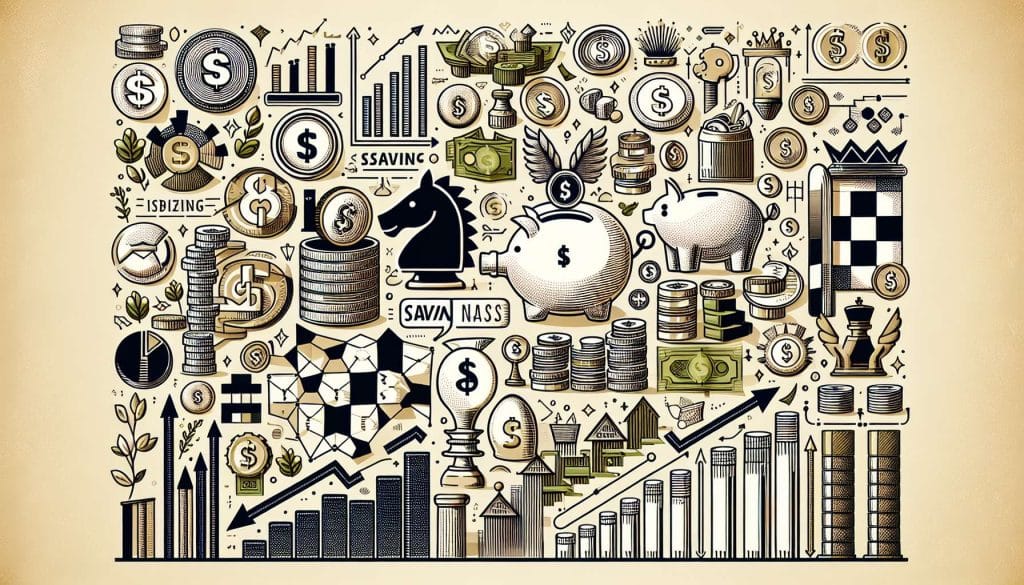Essential Money Hacks: Smart Strategies for Saving in the US


Anúncios
In a society where financial pressures are always lurking, mastering thriftiness is more crucial than ever—especially in America, where living expenses remain a frequent topic of discussion. Fortunately, some clever approaches and financial habits can demystify saving money, making it achievable and less overwhelming. Our article is here to share actionable advice, helping you extend the value of every dollar while maintaining an enjoyable lifestyle. So, are you prepared to transform your spending habits in a beneficial way?
Understanding the underlying principles of saving can significantly impact your financial outlook. Many individuals often question their spending habits and how to better manage them. In the US, the culture significantly drives consumer behavior due to advertisements and societal pressures. Acknowledging these influences allows for a more mindful spending approach, aligning your financial activities with genuine needs and long-term goals. Through this article, you’ll find strategies to avoid common spending pitfalls.
The journey towards financial mindfulness begins with recognizing how various lifestyle choices affect your wallet. Together, we’ll explore the consumer mindset, delve into budgeting frameworks, and unveil daily hacks for reducing expenses. Emphasizing these practices can lead to substantial savings and financial independence, all while minimizing environmental impact. As you continue reading, you’ll discover ways to enjoy a fulfilling life without overspending, bridging the gap between thriftiness and contentment.
Anúncios
An Overview of Financial Thriftiness
The complex nature of spending in America makes understanding consumer behavior crucial. In a consumption-driven environment, navigating spending traps becomes a crucial skill to develop. Most often, expenditures are heavily influenced by social trends, which can lead to lifestyle inflation. Recognizing these patterns help you make deliberate financial choices without sacrificing life’s pleasures.
Transforming these behavior patterns requires practical tools such as effective budgeting strategies. The 50/30/20 rule is an excellent starting point, advocating for a balanced allocation of income towards essentials, leisure, and savings. This economist-endorsed method prevents overspending by emphasizing savings and careful money management. Moreover, technology facilitates budgeting through apps designed to offer insights and tracking features.
Beyond budget planning, implementing small but smart changes in daily life helps cut costs substantially. Strategies like strategic grocery shopping and coupon usage can slice significant portions off your regular expense sheet. In essence, coupon platforms and cashback apps offer discounts that, over time, can accrue to substantial savings. These financial habits support individuals in achieving cost-effective living without compromising quality.
Anúncios
Adopting a thrifty lifestyle moves beyond immediate savings. Engaging in frugal habits naturally aligns with sustainability principles, promoting reduced consumption and contributing positively to environmental efforts. Financial independence stands as another benefit, leading to a stress-free approach to life choices—be it purchasing a home or planning retirement—with freedom from financial constraints.
Entertainment doesn’t need to come with a hefty price. Exploring natural spaces or local facilities like libraries enhances your experiences without draining resources. Many places offer low-cost or free events, contributing to a rich lifestyle at minimal costs. Wise subscription choices and shared services prevent unnecessary expenses, proving cultural enrichment and entertainment need not be extravagant.
Key Features of Thrifty Living
- Understanding consumer behavior to make informed financial decisions.
- Implementing the 50/30/20 budgeting framework for balanced finances.
- Utilizing technology for effective budget tracking and finance management.
- Developing daily life hacks for grocery and coupon savings.
- Engaging with free or low-cost community and outdoor activities.
Benefits of Embracing Thriftiness
Embracing a thrifty lifestyle offers numerous advantages beyond just savings. Key benefits include environmental conservation through reduced consumption and resource use. Financial independence is another result, empowering you to make life choices devoid of financial worry. Smart spending habits gain you both short-term relief and long-term stability.
Additionally, frugality enhances more than just financial aspects; it ventures into personal well-being. As you engage in less consumption-driven activities, the focus shifts to meaningful experiences and sustainable living. This balance enriches your lifestyle, bringing about a sense of fulfillment and purpose.
Environmentally conscious living through thriftiness reflects a commitment to sustainability. It’s a financially viable way of living that fosters ecological balance, paralleling many community values across the country. When shopping with mindfulness, your carbon footprint reduces, positioning you as a responsible consumer.
Moreover, adopting thrifty practices fosters an understanding of financial health, creating a wealth of opportunities to grow invested savings. The habits formed can be sustained through future trends, indebting a prosperity-centered mindset. In simple terms, employing thriftily ingrained habits opens doors to stronger financial wellness.
Engaging in thrifty practices drives a do-it-yourself attitude, enhancing self-sufficiency. When you prioritize need over want, you cultivate productivity, enhancing every aspect of your lifestyle. This self-directed approach significantly heightens one’s ability to navigate life’s challenges with preparedness and resilience.
- Reduced environmental impact through less consumption.
- Financial independence, freeing life choices from monetary stress.
- Considerable long-term gains through investment in savings.
- Enhanced lifestyle fulfillment focusing on experiences.
- Promotion of mindfulness and ecological responsibility.





